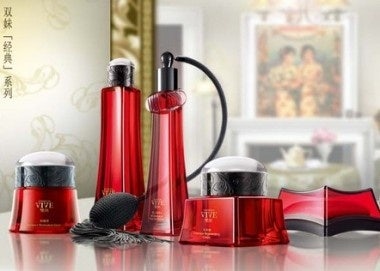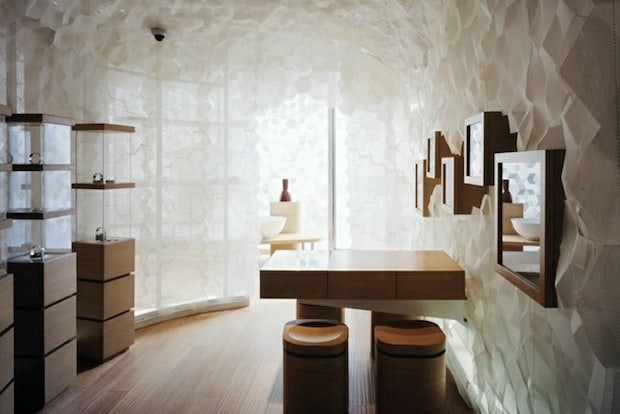Bosideng To Launch "Premium Menswear Brand" In London On July 26#

As major international mass-market retailers like Uniqlo, H&M and Zara continue to expand in the China market, some Chinese fast-fashion brands are setting their sights on overseas markets. Taking a different approach than competitors like Ochirly -- into which LVMH invested US$200 million earlier this year -- that focus singularly on the mainland China market, mass-market retailer Bosideng recently announced plans to make its international debut in London. According to a company release, Bosideng, which currently operates over 8,000 retail outlets throughout China, will officially launch a "premium menswear brand" at its first overseas flagship on London's South Molton Street on July 26.
According to Drapers, the majority of the products stocked at Bosideng's new London location will be manufactured in Italy, mainland Europe and China, with designs created in collaboration with Nick Holland and Ash Gangotra, who previously worked with former Oasis frontman Liam Gallagher and his label, Pretty Green. Though the company currently has no further European expansion plans, a spokeswoman said this week that a broader roll-out "is possible." As Bosideng UK chief executive Wayne Zhu said, “A move into Europe has been a goal of Bosideng for some time and we’re very excited to be launching in such a prominent location in London.”
If there's one surprising aspect to Bosideng's British expansion, it's not that it's happening now but that it's taken so long. As Retail Week writes today, the real story here is that it's interesting (yet understandable) that more Chinese retailers have yet to make their way to international markets like the UK:
[W]hile the general economy may be motoring, China’s retail offer is still relatively undeveloped, meaning most retailers lack the experience to attempt foreign markets.
“The retailers out there simply haven’t got the decades of experience that many of the western brands have got,” says Planet Retail global research director Rob Gregory.
And it’s not just a lack of experience that are putting Chinese retailers off expanding - there’s also the allure of the huge domestic market.

The last point seems to be the most important, particularly for Chinese mass-market brands that have already built a strong presence at home. While international flagships by the likes of Bosideng could widen the consumer base somewhat, increase prestige in the eyes of Chinese consumers, and attract outbound Chinese tourists in London and elsewhere, its unlikely that they'll be very profitable. Unless Bosideng manages to create a truly high-end line that can command premium prices -- a prospect that seems virtually impossible, considering its awkward Western name and lack of visibility in overseas markets -- it will be duking it out with established retailers like Topshop. That's why a truly large-scale expansion effort in Europe is an unlikely possibility for Bosideng. A larger global footprint most likely has the long-term aim of selling the European collection at certain locations within China, for which the brand can charge a premium.
Looking at this effort from a broader perspective, Bosideng's international goals illustrate one of the major challenges facing Chinese brands on the world stage: a struggle for acceptance. The majority of mass-market retailers, of which China has many, won't be able to rationalize the huge cost of maintaining international flagships while eking out minuscule profit margins. For China's upstart luxury brands, however, international expansion could prove more reasonable given it's done correctly. At the moment, some of these brands are plotting overseas moves in earnest while understanding that it'll likely be years before "made-in-China" luxury products gain a significant measure of acceptance abroad. As the FT noted this week, though 13 Chinese brands rank among the top 100 in the Global BrandZ list, none are "true household names with a significant global footprint."
The challenge of courting luxury shoppers overseas and combating international conceptions of Chinese products as of inferior quality is compounded by the same challenges at home for high-end Chinese brands. In segments like cosmetics, though, some Chinese brands have seen some success at home by promoting either their history and Imperial heritage (in the case of 182-year-old brand
Xiefuchun#
(谢馥春), which was a favorite in the Qing Dynasty court) or their traditional Chinese ingredients (newer brands
Shanghai VIVE#
and
Bayankala#
).

Though popularity in the Qing court in the 1830s, or ingredients like duck egg powder, might not be too exciting to Western consumers, celebrating -- rather than hiding -- "Chinese-ness" might be what eventually helps China's home-grown prestige brands crack international markets. In this way, cosmetic brands could teach apparel-focused brands a thing or two about attacking niches. Among the non-cosmetic brands currently looking at overseas expansion is
Shang Xia#
, the Hermès-supported Shanghai brand led by Jiang Qiong'er (Jing Daily interview).
As the FT points out this week, Shang Xia's strategy of calling back to China's long history and traditional craftsmanship could work internationally, as its goal is to "resurrect the image of an older China where only the best would do." Indeed, many are closely watching Shang Xia to gauge the potential for Chinese luxury brands abroad, particularly as the brand plans to open its next location not in Beijing but in Paris, about 200 meters away from the Rue De Sèvres Hermès flagship.
